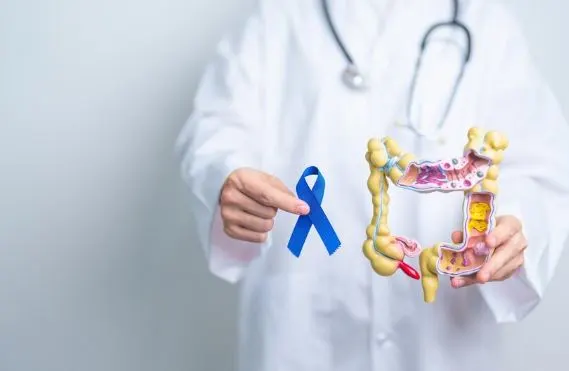
Colon cancer occurs when cancerous cancers develop in the intestines of the large. The majority of cases do not show any symptoms during the initial stages however patients must consult the doctor when they experience frequent changes in their bowel routines.
The colon, also known as the large intestinal tract, lies situated at the end in the digestive tract. It is the area where the bodies draw out the salt and water from the solid debris. It then passes through the rectum, and then exits into the anus. Rectal cancer begins in the rectum. This is a few inches of the intestinal tract, which is close to the anus.
Colon cancer in Ahmedabad can be described as a catch-all definition of any cancer that is found within the colon. This encompasses the rectum. The cancer does not need to have either the colon or rectum. It can be instead, it can be either or both to be considered to be colorectal cancer.
Health professionals advise regular screening for colorectal cancer to those who are between 45 and 75. For those seeking expert care, Colon cancer doctors in Ahmedabad offer comprehensive screening, diagnosis, and treatment options to help detect and manage colorectal cancer early.
We discuss the best way to identify as well as treat colon cancer. We also look at how it is developed and what you can do to stop it.
The Symptoms and Indications of Colon Cancer
The symptoms and signs could be the following:
- diarrhea and constipation
- variations in stool consistency for example, loose or small stool
- blood in stool that could make the stool appear darker black or brown
- Bright red bleeding coming through the rectum
- abdominal pain, cramping, bloating, or gas
- continual urges to defecate despite passing stools
- weakness and fatigue
- unproved weight loss
- iron anemia due to iron deficiency
The loss of weight and abdominal pain typically occur during the latter phases of the condition.
When cancer develops in an entirely new area of the body, like that of the liver, it could produce additional symptoms like the appearance of jaundice.
Early Symptoms
Colon cancer usually does not have symptoms at the beginning of its course however, symptoms can be more apparent when the cancer grows. When patients experience signs at the beginning of their illness it could be:
- The stool is stained with blood.
- A shift in frequency or the type of bowel movements like constipation, diarrhea or even narrow or ribbon-like stools
- the feeling that you aren’t emptying the bowels following a bowel motion
- abdominal cramping, pain or abdominal pain, cramping or
- anemia caused by the bleeding of the intestine
- tiredness and weakness
Stages
There are a variety of ways to the process of assigning a stage to cancer. The stages are a measure of how far cancer has gotten out of control and the size of tumours.
When colon cancer is diagnosed, phases develop according to the following:
- Stage 0: Also known as carcinoma located, at this stage, the cancer is still in an infancy stage. The cancer hasn’t spread beyond the outer part of the colon. It is usually easy to cure.
- Stage 1: The cancer has risen to the second layer of tissue.
- Stage 2: The cancer has infiltrated the outside of the colon, but is not spreading beyond the colon.
- Stage 3: It has grown within the outer layers of the colon, and has reached up to three or more lymph nodes. The cancer hasn’t spread into distant locations.
- Stage 4: It has spread cancer to additional tissues outside of the wall in the colon. With the progression of stage 4 the colon cancer spreads to distant regions within the human body.
Causes
In general, cells go through an ordered process of division, growth and then death. Cancer may develop as cells multiply and grow without control and don’t cease to exist at the appropriate time within their lives. Cancer is the result of mutations in DNA inside cells. Certain genes, known as oncogenes, help cells to live, develop and multiply.
The cancer suppressor genes aid in regulating cell division as well as death of cells. Genetic changes may affect cancer suppressor and oncogene genes. This can lead to many gene modifications that can result in colon cancer. Polyps are benign growths that develop within the colon. They are not cancerous, however cancer may develop from certain kinds of polyps.
If you have the non-cancerous form of polyp known as an adenomatous the patient is at an higher risk of being diagnosed with colon cancer. They form in the lining of the large intestinal tract.
The cancerous cells can grow from malignant cancers and spread to different parts of the body via the blood and lymphatic systems. Airavat Cancer Care offers colon cancer treatment in Ahmedabad, providing advanced screening, accurate diagnosis, and personalized treatment plans to ensure the best possible care and outcomes for patients.
The cancerous cells may develop and spread to healthy tissues within the vicinity, and even throughout the body by a process called metastasis. It can result in an even more severe and less manageable disease.






